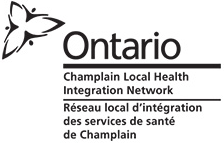
What is Depression?
Everyone has times when they feel the ‘blues' or when they get sad from time to time. Depression, on the other hand, is a sadness so severe that it can cause:
- Difficulties functioning at home, work or school
- Changes in sleep, energy, appetite and concentration,
- Feelings such as sadness, anxiety, irritability or anger,
- Low self-esteem or feelings of hopelessness. When extremely severe, people who are depressed may have thoughts of hurting themselves.
How Common is Depression?
Depression is a common condition that can affect anyone at any age. In any given year, it is estimated that it affects almost 1 in 10 adults each year, affecting more women than men. Although it can occur at any age, it usually starts in the late teens to mid-20s.
Symptoms of Depression
Symptoms of depression include (but are not limited to) the following:
- Sad, depressed (or irritable) mood most days
- Loss of interest or enjoyment in activities
- Problems with appetite
- Problems with sleep
- Problems with concentration
- Feeling guilty, hopeless, or worthless.
- Thoughts that life isn't worth living (such as thoughts of suicide) or attempts at suicide
When the above symptoms are consistently present for more than 2-weeks, it may be depression.
What Causes Depression?
There is no single cause of depression, and every person's depression may result from a combination of different things. Many factors can contribute to depression:
- Family history of depression: if other people in the family have had troubles with depression, it may make someone at higher risk.
- Stressful life situations or events, such as problems with relationships, or stresses at work, home or school. Particularly stressful situations may include childhood abuse or neglect, separation/divorce, or conflicts.
- Imbalances in neurotransmitters can be triggered by lack of sunlight, drug use, medications, or medical problems.
How is Depression Treated?
There are numerous effective treatments for depression, which mental health professionals generally give.
Commonly used therapies include:
- Cognitive behaviour therapy (CBT): Helps individuals cope with depression by focusing on changing their thoughts and behaviours. In depression, individuals tend to have negative, depressive thoughts. In CBT, individuals learn to replace depressive thoughts with more positive, helpful thoughts.
- Interpersonal psychotherapy (IPT): Helps with depression by focusing on improving relationships. Regardless of how the depression started, individuals with depression tend to have tension in their relationships from either 1) conflict or withdrawal or 2) life transitions or changes. IPT helps improve these difficulties.
- Solution-focused therapy: Helps by finding solutions. In depression, individuals tend to focus on life stresses and problems. In solution-focused therapy, individuals get support in finding solutions to these difficulties.
- Medications: These may be helpful in certain cases, which may be prescribed by a family physician, pediatrician, or psychiatrist. Medications are generally used only when other treatments have not been successful or when the depression is so severe that other treatments are impossible.
Depending on the severity of the depression, more intensive support and services may be required, such as admission to a hospital.
Helping Someone Who is Depressed
If you know someone who is depressed, it affects you too. The first and most important thing you can do to help a friend or relative who has depression is to help them find an appropriate diagnosis and treatment. You may need to make an appointment on their behalf and go with them to see the doctor. Encourage them to stay in treatment or to seek different treatment if no improvement occurs after six to eight weeks.
To help a friend or relative:
-
Offer emotional support, understanding, patience and encouragement.
-
Engage your friend or relative in conversation, and listen carefully.
-
Never disparage feelings your friend or relative expresses, but point out realities and offer hope.
-
Never ignore comments about suicide, and report them to your friend's or relative's therapist or doctor.
-
Invite your friend or relative out for walks, outings and other activities. Keep trying if they decline, but don't push them to take on too much too soon. Although diversions and company are needed, too many demands may increase feelings of failure.
-
Remind them that with time and treatment, the depression will lift.
(Adapted from the National Institute for Mental Health (NIMH), retrieved from http://www.nimh.nih.gov/health/publications/depression/depression-booklet.pdf)
How Can I Help Myself If I Am Depressed?
-
Practice self-acceptance and self-compassion. One of the problems of depression is that many of us tend to have a self-critical voice that makes us feel guilty or ashamed for being depressed. Perhaps it's because we think that being self-critical will be helpful, but unfortunately, it usually doesn't help and makes us feel worse. There is an alternative... Accept that you are imperfect and flawed because, after all, you are only human. Humans get depressed, and you are human. Every one of us is flawed and imperfect, and hence we do suffer from depression and other problems. At the same time, it means you are not alone...
Do you struggle at finding that self-compassionate voice? If so, try to think about what you'd tell a friend who is suffering from depression or dealing with a difficulty? You'd say things like, "It's okay, I'm here with you..." Try to work at being a bit more accepting and supportive of yourself. Because after all, you are human, and humans get depressed, and it’s okay.
"It's not your job to like me. It's mine" -- Toni Bernard
-
Relationships .
Humans are social creatures and need social interaction.-
Don’t isolate yourself, but seek out ways to spend positive quality time with people.
-
Do you have people that make you feel supported? Wonderful. Thank them for being supportive.
-
Do you have people in your life that are not so supportive? Gently let them know what you need. Most of the time, what people need for emotional support is simply someone to listen and validate your feelings (as opposed to someone giving you advice and judgement). So you might say things like, "Thank you for wanting to be helpful to me. I know that you want to be helpful. Right now, all I need is for you to listen and validate how I feel. I'll let you know if I need advice or suggestions on what to do. Thank you."
-
Do things with other people such as going for a walk, a meal or having a coffee, tea or hot chocolate…
-
-
Sleep . Ensure that you sleep ideally 9-11 hrs a day . There is an epidemic of sleep deprivation in many modern societies. Interestingly enough, the symptoms of sleep deprivation match those of depression...
-
Exercise. At least 30-minutes a day of aerobic exercise (e.g. walking) , ideally outside.
-
Nutrition and diet. Ensure a well-balanced diet consistent with Canada’s Food Guide recommendations, and try to ensure that you:
-
Eat plenty of multicoloured fruits and vegetables (“rainbow diet”)
-
Get enough omega 3 fatty acids, e.g. consume fish or vegetable sources such as flax seeds.
-
Limit excessive calories
-
Limit processed foods
-
Limit soft drinks
-
Limit animal fats
-
-
Nature . Spend more time in nature. The exact time is uncertain, but studies on eye health suggest that humans need at least 10 hrs/week (i.e. at least 1-hr daily outside).
-
Reduce overuse of technology . Do not let devices replace human contact or contact with nature . Limit recreational screen time, e.g. watching movies / TV.
-
Recreation . Ensure that there are enjoyable and pleasurable activities that may be:
-
Fun and humour, e.g. watching or listening to comedy
-
Creative, e.g. art, music, dance, reading
-
Games and sports
-
-
Relaxation and stress management. Ensure that you have ways to relax and manage stress levels. Modern society is stressful, and it is thus important to have practices such as relaxation, meditation, deep breathing or mindfulness to help cope with stress.
-
Religious and spiritual involvement . Find a way to feel a deep connection and meaning to other people, the world and the universe. This might involve religious practices such as belonging to a spiritual community (e.g. church, mosque, template, synagogue, etc.) or contemplative practices such as meditation or spending time in nature. Consider practices such as self-acceptance, self-compassion, and mindfulness.
-
Contribution and service to others. Be helpful and contribute to others. This can range from simply doing good deeds for others (e.g. helping someone with their household chores such as cooking, groceries or laundry), volunteer work, or other work.
Wondering about Depression?
Are you wondering about depression?
-
See your doctor. Your doctor can make sure there aren't any medical problems (such as hormone imbalances) that might be causing or contributing to the depression. Your doctor can also help recommend where to get help, such as seeing mental health professionals such as psychologists, psychiatrists, or social workers.
In a Crisis?
Are you in a crisis, or thinking about harming yourself or know someone who is, then get help immediately:
-
Call a family member, friend or co-worker.
-
Call 911 or go to a hospital emergency room to get immediate help or ask a friend or family member to help you do these things.
-
Call a crisis line.
If you know someone else who is in an immediate crisis, then:
-
Help the other person get help.
-
Make sure that you don't leave the other person alone.
For More Information
- Depression Information from the Public Health Agency of Canada
- Interactive Health Tutorial on Depression from the National Library of Medicine
About this Document
Written by Dr. Michael Cheng, Psychiatrist, University of Ottawa; Dr. Jeanne Talbot, Psychiatrist, Royal Ottawa Mental Health Centre.
Disclaimer
Information in this pamphlet is offered ‘as is' and is meant only to provide general information that supplements but does not replace the information from your health provider. Always contact a qualified health professional for further information in your specific situation or circumstance.
Creative Commons License
You are free to copy and distribute this material in its entirety as long as 1) this material is not used in any way that suggests we endorse you or your use of the material, 2) this material is not used for commercial purposes (non-commercial), 3) this material is not altered in any way (no derivative works). View full license at http://creativecommons.org/licenses/by-nc-nd/2.5/ca/


























